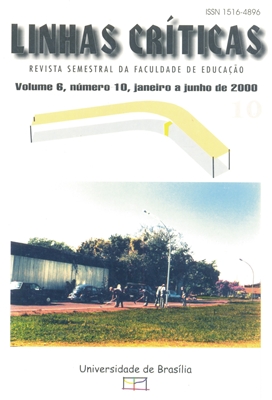Educação ambiental, investigação-ação e empowerment: estudo de caso
DOI:
https://doi.org/10.26512/lc.v6i10.2823Keywords:
Educação ambiental;, Investigação-ação;, EmpowertnentAbstract
Este artigo trata do relato de experiência de educação ambiental em que a Universidade de Brasília, junto com uma comunidade rural, tem lutado pela preservação da cachoeira do Morumbi, Planaltina, DE Caracterizando- se como um trabalho de educação popular, as ações têm sido pautadas por uma concepção dialógica entre seus integrantes, voltando-se para uma ação transformadora da realidade. Nesta trajetória, porque desempenharam papel de investigadores ativos e críticos, planejando e debatendo as ações e suas consequências, os próprios moradores que participaram do processo através da Associação de Moradores passaram a conhecer mais sobre a própria história do seu loteamento. Tomaram, então, ciência da legislação ambiental de uso do solo, identificaram as instâncias apelativas para esse tipo de litígio, e explicitaram as contradições que se achavam latentes no seio da própria estrutura organizacional da comunidade.
Downloads
Downloads
Published
How to Cite
Issue
Section
License
Copyright (c) 2016 Linhas Críticas

This work is licensed under a Creative Commons Attribution 4.0 International License.
Authors who publish in this journal agree to the following terms:
-Authors maintains the copyright and grants the journal the right of first publication, the work being simultaneously licensed under the Creative Commons Attribution License which allows the sharing of the work with recognition of the authorship of the work and initial publication in this journal.
- Authors are authorized to enter into additional contracts separately, for non-exclusive distribution of the version of the work published in this journal (eg publish in institutional repository or as a book chapter), with acknowledgment of authorship and initial publication in this journal.
-Authorers are allowed and encouraged to publish and distribute their work online (eg in institutional repositories or on their personal page) at any point before or during the editorial process, as this can generate productive changes as well as increase the impact and the citation of published work (See The Effect of Free Access).



